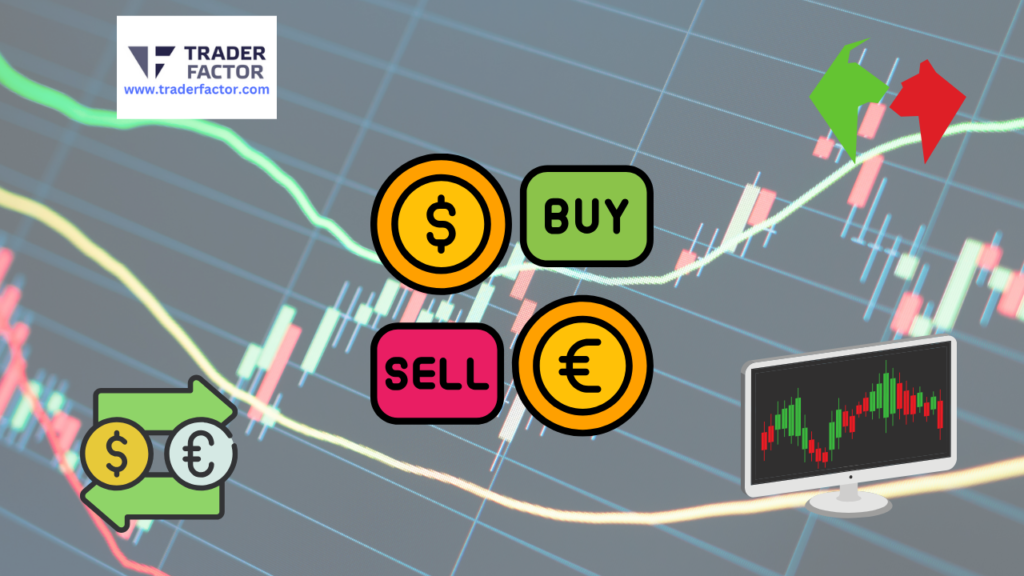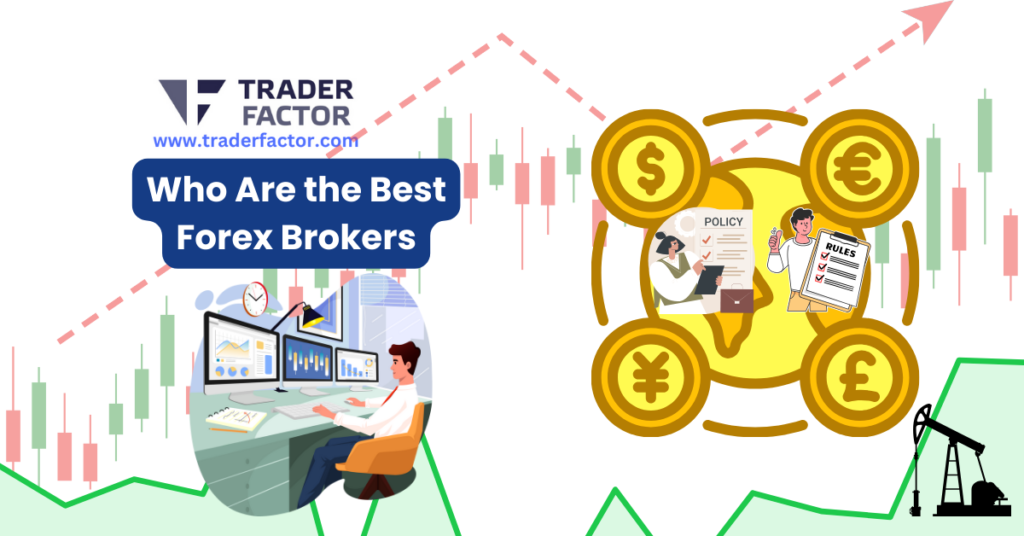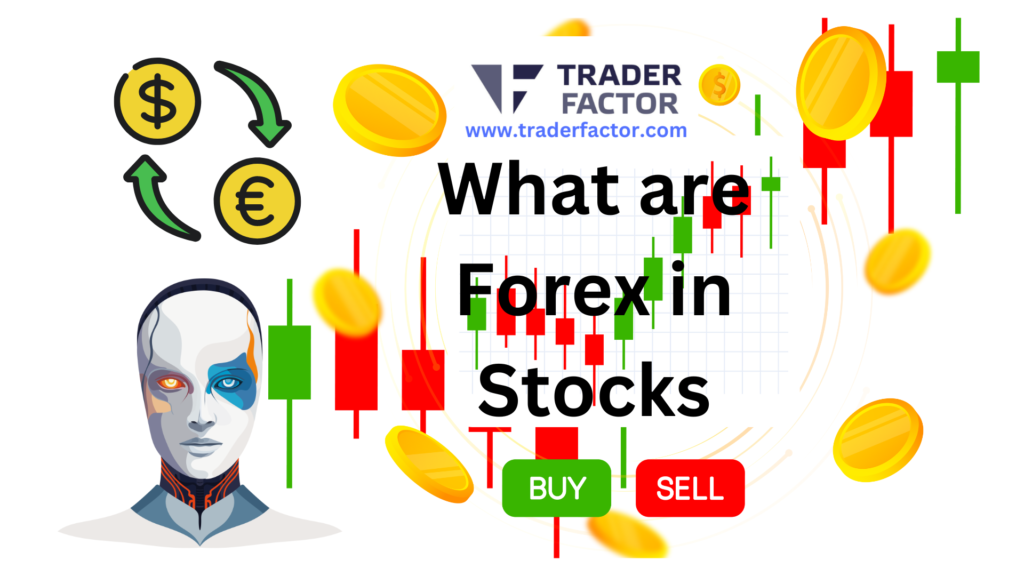Curious about what Forex in stocks entails? You’ve come to the right place! Forex, short for foreign exchange, plays a crucial role in the world of stocks. Understanding the differences between Forex and traditional stock trading can help you navigate the financial markets more effectively. By delving into how Forex trading works and gaining insight into investing in stocks, you’ll be better equipped to make informed decisions regarding your financial portfolio. So, let’s explore the world of Forex in stocks together and discover the opportunities and challenges of this dynamic market.
Table of Contents
ToggleDefinition of Forex
Forex refers to the foreign exchange market where currencies are traded. When trading in currency, you essentially buy one currency while selling another simultaneously. The value of one currency is determined by another, making forex a decentralized global marketplace. Traders participate in this market to speculate on the fluctuating exchange rates, aiming to profit from the price movements of various currency pairs. With a daily trading volume surpassing trillions of dollars, the forex market operates 24 hours a day, five days a week, providing ample opportunities for investors worldwide.

Understanding the dynamics of foreign exchange is crucial for anyone looking to venture into the exciting world of currency trading.
Understanding Stocks

To comprehend stocks, you must grasp the concept of ownership in companies. When you own a stock, you own a piece of that company and are entitled to a share of its profits. Understanding market trends is crucial in stock trading. You can decide when to buy or sell stocks by analysing market trends. Technical analysis plays a key role in understanding stocks. This involves studying past market data, such as price and volume, to predict future price movements. By utilizing technical analysis, you can identify patterns and trends that help you make strategic investment decisions. Stay informed and continuously educate yourself on market trends and technical analysis to enhance your understanding of stocks.

Key Differences Between Forex and Stocks
Understand the distinctions between forex and stocks. In forex trading, market volatility is often higher than in stocks, leading to potential rapid gains or losses. Risk management is crucial in both markets but may require different approaches due to varying factors like leverage availability. Stocks generally offer long-term profit potential through dividends and capital appreciation, while forex focuses on short-term currency fluctuations. Trading strategies also differ; stocks are often influenced by company performance and market trends, while trading involves analyzing macroeconomic factors and geopolitical events. It’s essential to grasp these variations to make informed decisions in either market. Remember to adapt risk management techniques and trading strategies to navigate the unique characteristics of forex and stocks.
How Forex Trading Works

Have you ever wondered how trading in the forex market operates compared to stocks? In forex trading, you buy one currency while simultaneously selling another. The basic principle is to profit from the fluctuating exchange rates between two currencies. Understanding forex trading basics is crucial to navigate this dynamic market successfully. Unlike stock trading, forex markets operate 24 hours a day, five days a week, due to different time zones across the globe. Developing effective trading strategies is essential in forex trading to manage risks and maximize profits. Traders often use technical analysis, fundamental analysis, or a combination of both to make informed decisions.

Investing in Stocks: What to Know
In stocks, you invest in ownership stakes of companies, aiming to profit from their performance in the market. Understanding stock market basics is crucial before diving in. Stocks represent shares of ownership in a company, and their value fluctuates based on factors like company performance, economic conditions, and investor sentiment. When investing, consider your risk tolerance, investment goals, and time horizon. One of the common investment strategies is diversification, which means spreading your investments across different companies and industries to reduce risk. Another strategy is dollar-cost averaging, where you invest a fixed amount regularly regardless of market conditions. Researching companies, staying informed about market trends, and seeking advice from financial experts can help you make informed investment decisions.
Frequently Asked Questions
Who Are the Best Forex Brokers?

Here are some trusted and multiregulated forex brokers suitable for all styles of trading :
OneRoyal: Known for its social trading platform, OneRoyal Forex Broker offers many educational resources and a convenient demo account for practice. The max leverage you can choose when applying for a trading account is 1:1000, and you can apply for a 100% Deposit bonus. If you have an account with OneRoyal, you can use the following trading tools: CopyTrading with Hoko Cloud, Trading Central, MT4 Accelerator, VPS Hosting, and Trading Calculators. OneRoyal is regulated by AFSL-ASIC, CySEC, VFSC, and FSA.

IronFx: This broker provides a simple platform and a risk management tool to help you better control your trading risks. You can choose up to 1:1000 leverage for trading and get a 100% Deposit booster. As a live account owner, you can also use the Trading Tools: TradeCopier, Trading Central, AutoTrade, and VPS Hosting. IronFx is regulated by FCA, CySEC, FSCA, and BMA.

Admirals: Admirals stands out with exceptional customer support and a wide range of educational resources. You can get leverage up to 1:500, apply for VIP account conditions, and get CashBack for every trade you make. Live account holders can also use the following Trading Tools: MetaTrader Supreme Edition, StereoTrader, Trading Central, Premium Analytics, and VPS Hosting. Admirals are regulated by FCA, CySEC, AFSL-ASIC, JSC, CIPC, and CMA.

ActivTrades: Offers a user-friendly platform, extensive educational resources, and versatile demo accounts. The highest leverage is 1:400, but only for Professional traders. For retail traders, the max leverage is set to 1:200. Traders can get CashBack and Interest on their free margin funds. With ActivTrades, you can trade with TradingView on their platform ActivTrader. ActivTrades is regulated by FCA, CSSF, CMVM, SCB, and BACEN.

EightCap: EightCap wraps it up with an intuitive platform, top-notch educational materials, and an effective customer support team. The highest leverage is 1:500, and you can get a 10% deposit bonus. With EightCap Forex Broker, you can get trading tools such as TradingView, Crypto Crusher, Capitalise AI, FlashTrader, Acuity, and VPS Hosting. EightCap is regulated by AFSL-ASIC and SCB.

Can Individuals Trade Forex and Stocks Simultaneously in the Same Brokerage Account?
Yes, you can trade forex and stocks simultaneously in the same brokerage account. Be mindful of margin requirements for each asset class, practice effective risk management, adapt trading strategies to suit market volatility, and diversify your portfolio for stability.
Are There Any Specific Regulations or Governing Bodies That Oversee Forex Trading Compared to Stock Trading?
Regulatory bodies closely oversee forex trading compared to stock trading. Forex brokers must adhere to strict guidelines to protect traders. Market volatility can lead to trading restrictions, emphasizing the importance of effective risk management and sound trading strategies.
How Does Leverage Differ Between Forex and Stock Trading?
When comparing leverage in forex and stock trading, understand that forex typically offers higher leverage. Proper risk management is vital due to increased volatility. Margin requirements vary, impacting trading psychology. Be cautious and informed.
Are There Any Major Geopolitical Events That Can Impact Forex Trading More Than Stock Trading?
Major geopolitical events, like political tensions or economic indicators, can impact forex trading significantly more than stock trading due to market volatility and the direct influence on currency pairs. Stay informed to navigate these shifts effectively.
What Are Some Common Mistakes That Beginners Make When Trading Forex Compared to Stocks?
When trading forex, beginners often overlook risk management, leading to larger losses. Emotions can impact decision-making more in forex than stocks. Be mindful of these pitfalls and focus on disciplined strategies to improve your trading outcomes.
Forex in Stocks Conclusion
Overall, understanding the differences between forex and stocks is crucial for investing in the financial markets. While forex trading involves the buying and selling of currencies, stocks represent ownership in a company. Both markets offer unique opportunities for investors, so it’s important to research and understand the risks involved before diving in. Whether you choose to trade forex or invest in stocks, make sure to have a solid strategy in place to maximize your potential returns.
Disclaimer:
All information has been prepared by TraderFactor or partners. The information does not contain a record of TraderFactor or partner’s prices or an offer of or solicitation for a transaction in any financial instrument. No representation or warranty is given as to the accuracy or completeness of this information. Any material provided does not have regard to the specific investment objective and financial situation of any person who may read it. Past performance is not a reliable indicator of future performance.


